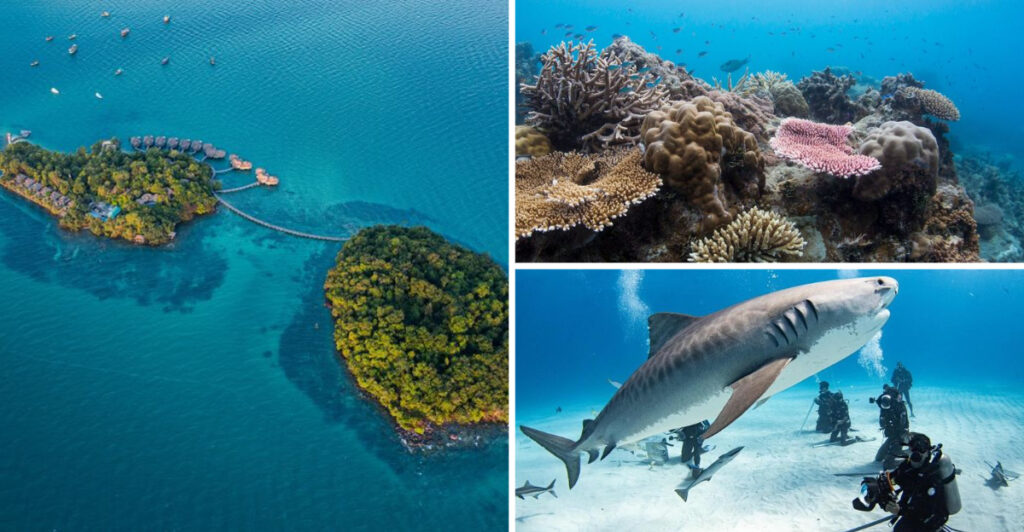Luxury dive resorts promise underwater paradise and five-star treatment, but they often hide secrets from their glossy brochures. From unexpected environmental practices to surprising local connections, these exclusive getaways aren’t always what they seem. Before booking your next underwater adventure, discover what the travel magazines won’t tell you about these high-end diving destinations.
1. Misool Eco Resort’s Secret Conservation Battle
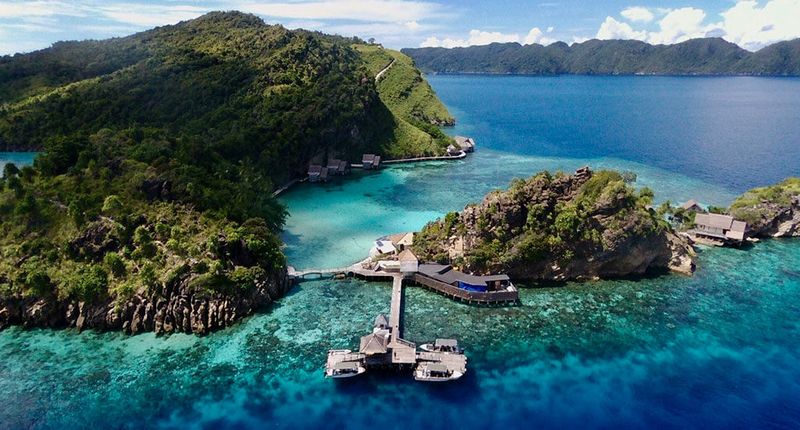
Raja Ampat’s crown jewel fights an ongoing war against illegal fishing fleets that rarely makes headlines. Resort staff conduct nighttime patrols to protect their marine sanctuary, something guests never see.
The pristine reefs surrounding the resort exist because management pays local communities to stop destructive fishing practices. Your luxury accommodation directly funds conservation rangers who’ve faced physical threats while defending marine life.
2. Laucala Island’s Underwater Electricity Problem
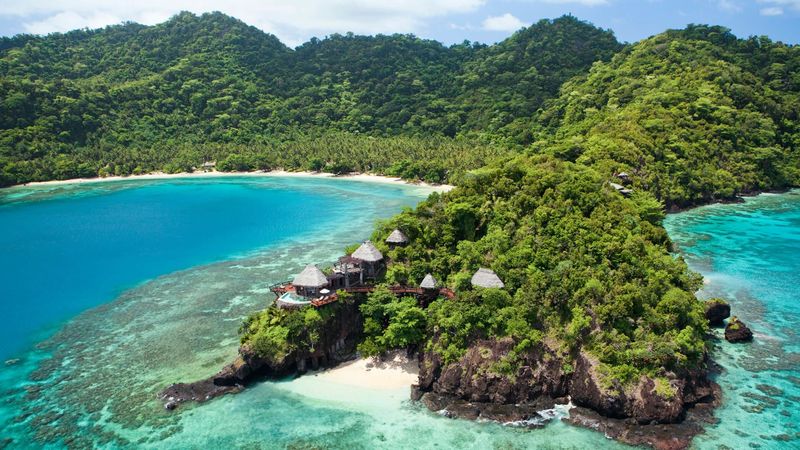
Behind this Fijian paradise’s perfect facade lurks a massive power consumption issue. The submarine suites burn through electricity equivalent to a small village, creating maintenance headaches staff constantly battle.
Generators run 24/7 to maintain the underwater lighting systems guests love for nighttime reef viewing. Management quietly installed experimental tidal generators last year after facing criticism from environmental groups about their carbon footprint.
3. Fregate Island’s Reef Restoration Controversy
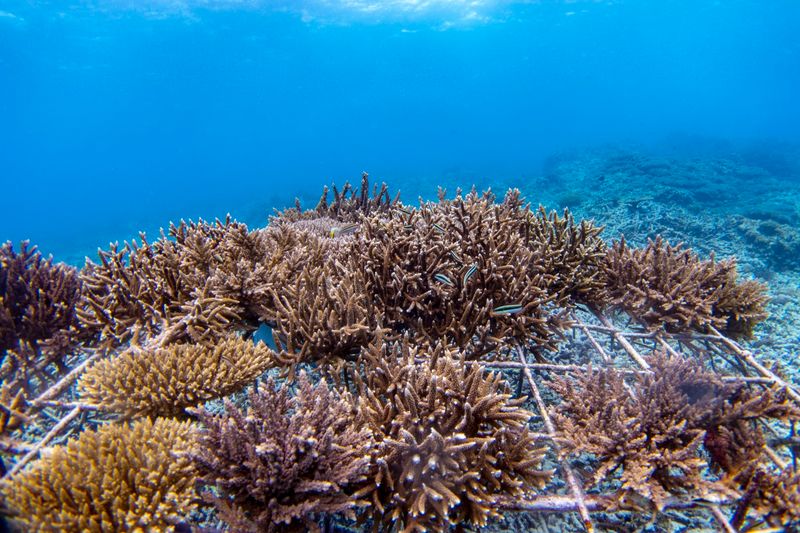
Marketed as an eco-paradise, this Seychelles hideaway transplants coral from healthy reefs to create artificial dive sites near guest villas. Marine biologists have questioned these practices, suggesting they prioritize guest experience over ecosystem health.
Local dive guides privately express concerns about the sustainability of moving coral formations. The resort’s impressive reef recovery statistics conveniently omit transplant failure rates and impact on source reefs.
4. Velaa Private Island’s Artificial Reef Failure
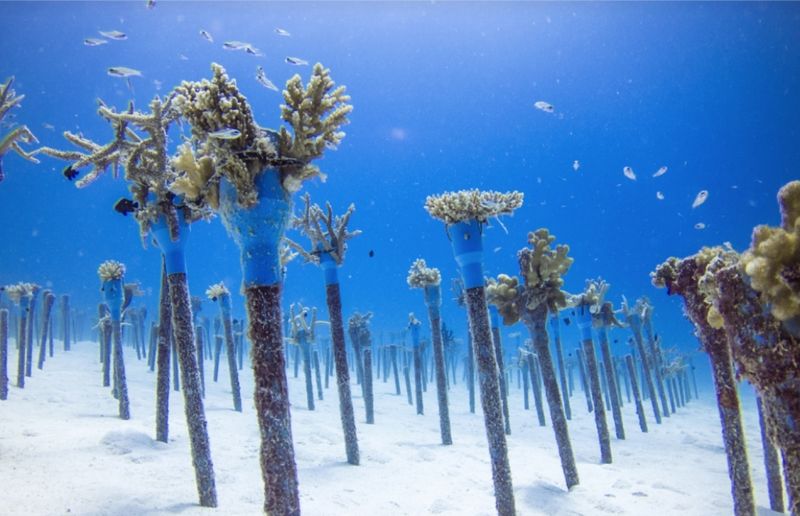
Maldivian ultra-luxury meets underwater disappointment at this exclusive resort. Their heavily marketed artificial reef program collapsed after just two seasons, with structures breaking apart during monsoon currents.
Guests pay premium rates for “exclusive” dive sites that barely support marine life. Management quietly abandoned the $2 million project but continues featuring outdated photos in marketing materials, leaving first-time visitors confused when actual dives don’t match expectations.
5. Kokomo Island’s Local Diver Displacement
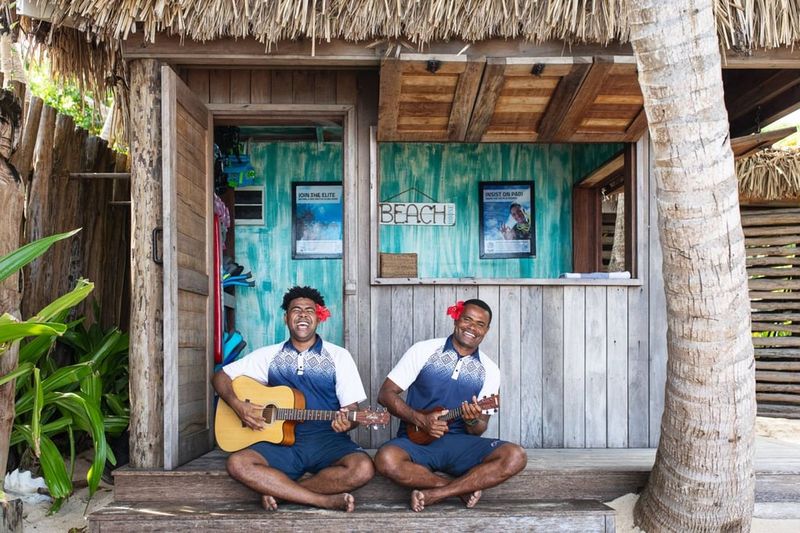
Fiji’s ultra-exclusive retreat created private dive zones by restricting local access to ancestral fishing grounds. Village elders received minimal compensation while the resort claims “partnership with local communities” in their sustainability reports.
Guests remain unaware that their “pristine, untouched” dive experiences come at the cost of cultural displacement. Local dive operators must travel further to reach alternative sites, burning more fuel and increasing their operational costs dramatically.
6. Song Saa’s Underwater Waste Management Crisis
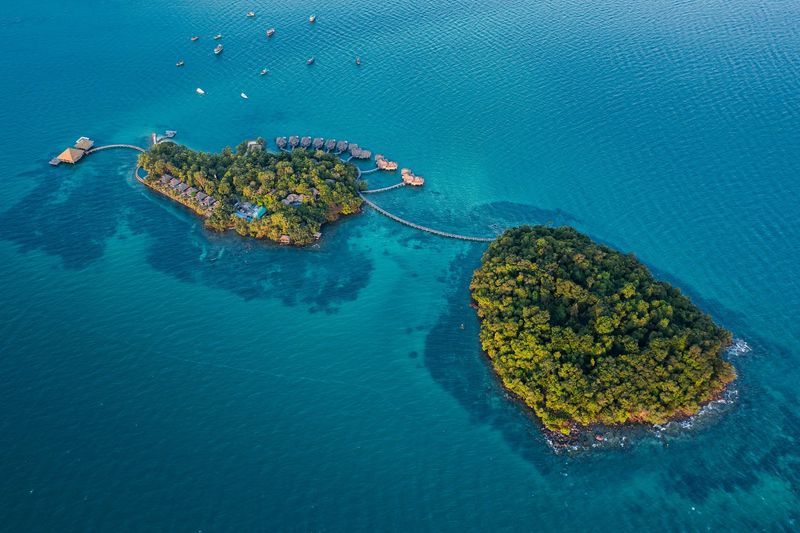
Cambodia’s first luxury island resort struggles with waste disposal despite its eco-friendly marketing. Staff secretly release treated sewage during specific tide cycles, timing releases to avoid guest detection.
The resort’s remote location makes proper waste removal logistically challenging and extremely expensive. Recent underwater surveys revealed concerning nutrient levels near outflow points, potentially contributing to algae blooms that threaten the very coral systems guests pay to explore.
7. North Island Seychelles’ Shark Feeding Controversy
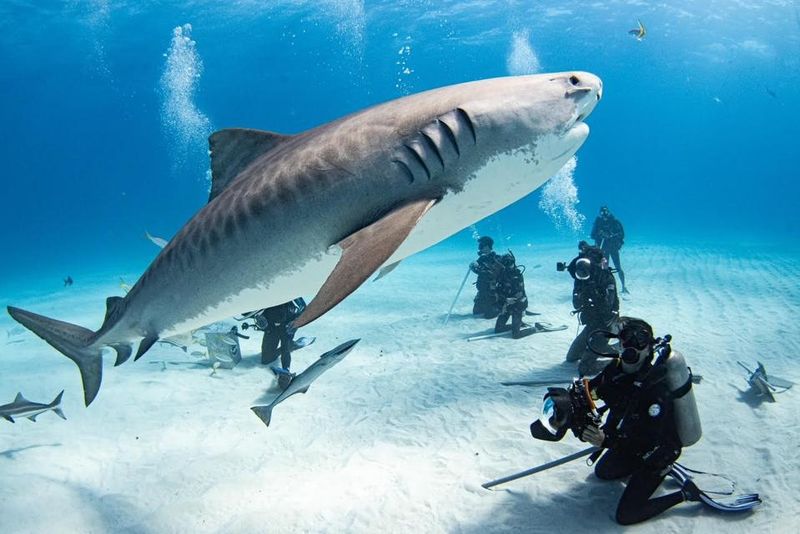
Celebrity-favorite North Island conducts clandestine shark feeding sessions to guarantee sightings for VIP guests. This practice alters natural predator behavior but remains deliberately unmentioned in their conservation materials.
Staff biologists have raised internal concerns about dependency patterns developing in local shark populations. The resort maintains two separate dive briefings – standard protocols for regular guests and “enhanced experience” instructions for those paying premium rates who expect guaranteed shark encounters.
8. Bawah Reserve’s Coral Bleaching Cover-Up
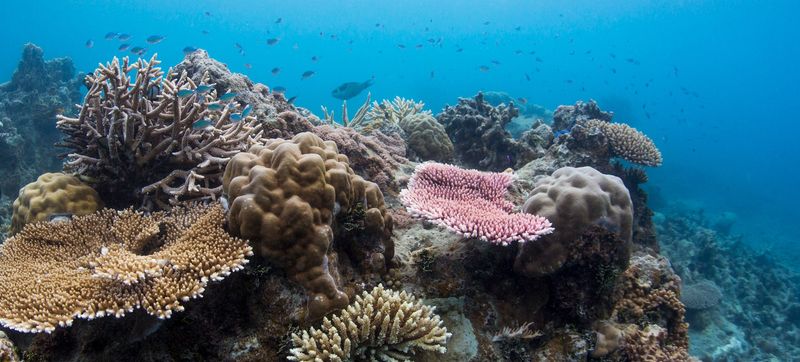
Indonesia’s remote eco-luxury destination carefully stages underwater photography to hide extensive coral bleaching. Marketing materials feature selective angles and enhanced colors that misrepresent the actual reef condition.
Guest testimonials mentioning declining reef health mysteriously disappear from review sites. The resort actively discourages divers from bringing underwater cameras to certain sites, instead offering “professional photos” taken at the few remaining pristine sections.
9. Lizard Island’s Staff Exploitation Scandal
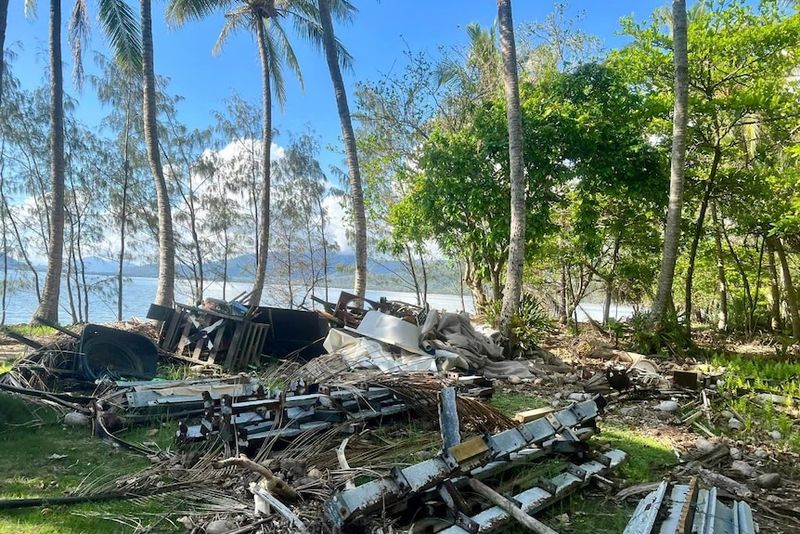
Australia’s premier Great Barrier Reef resort maintains picture-perfect service through problematic labor practices. Dive instructors work 14-hour days during peak seasons while management circumvents labor regulations through complex contractor arrangements.
International staff often arrive with dreams of diving paradise only to face isolated working conditions and substandard housing. The resort’s remote location makes regulatory oversight minimal, allowing practices that would never be permitted at mainland operations.
10. Nihi Sumba’s Artificial Marine Encounters
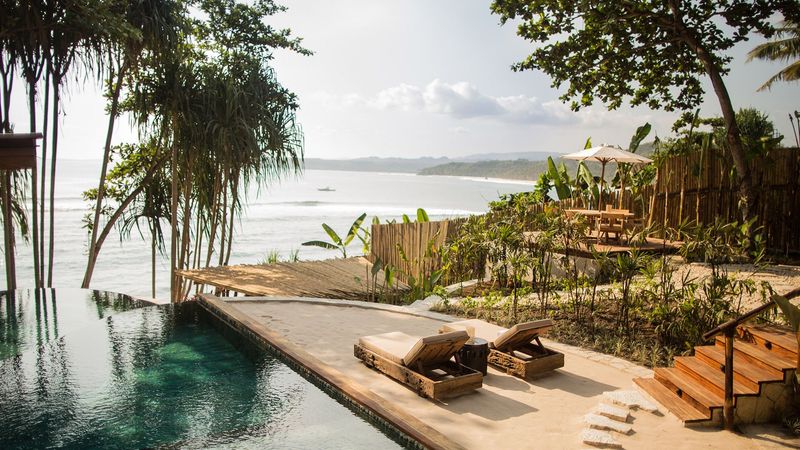
Indonesia’s award-winning luxury outpost stages underwater “discoveries” for guests seeking authentic experiences. Distinctive shells and marine artifacts are strategically placed before guided snorkeling tours to guarantee memorable finds.
The resort’s famed “wild encounter” packages include carefully timed visits to sites where marine life has been conditioned to appear through regular feeding. Local dive guides receive bonuses for ensuring guests photograph specific species, creating pressure to manipulate natural behaviors.
11. Six Senses Laamu’s Manta Ray Tracking Controversy
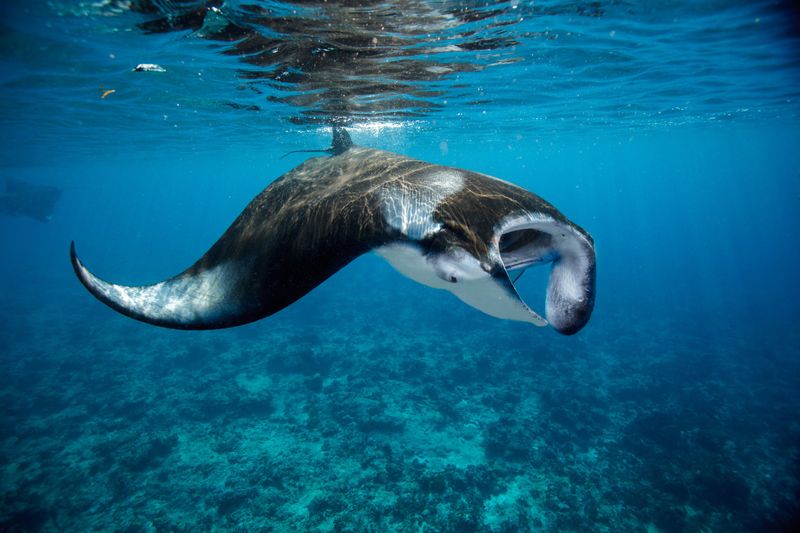
Maldives’ sustainability pioneer attaches tracking devices to manta rays without proper scientific oversight. Their “citizen science” program allows guests to participate in tagging activities despite concerns from marine biologists about amateur application techniques.
Several tracking devices have been improperly attached, causing potential harm to these protected creatures. The resort prominently features their research contributions in marketing materials while downplaying criticism from international marine conservation organizations about their methods.
12. Thanda Island’s Reef Dynamiting Neighbors
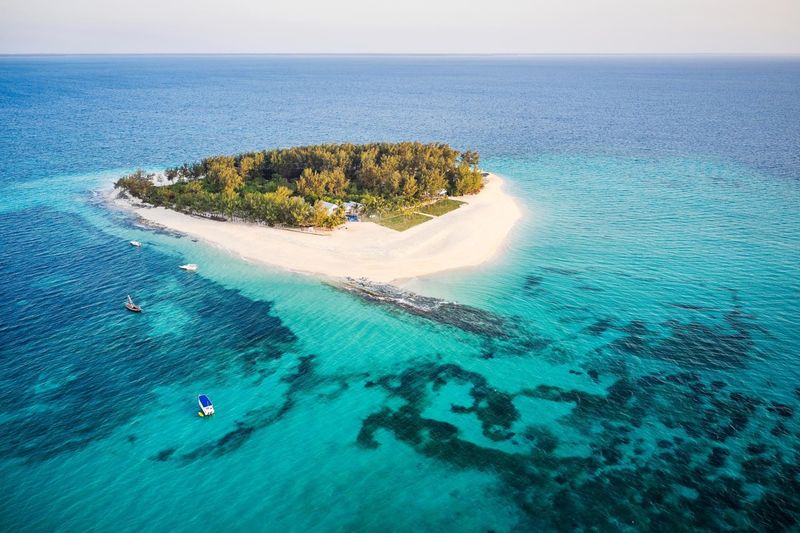
Tanzania’s private island paradise markets pristine diving while ignoring destructive fishing practices happening just outside their protected zone. Local fishermen regularly use dynamite in adjacent waters, activities the resort could influence but chooses not to address.
Management maintains a policy of non-interference with local fishing methods to avoid political complications. Guests often report hearing underwater explosions during dives but receive rehearsed explanations about “construction” or “military exercises” rather than the actual cause.
13. Petit St. Vincent’s Dwindling Reef Access
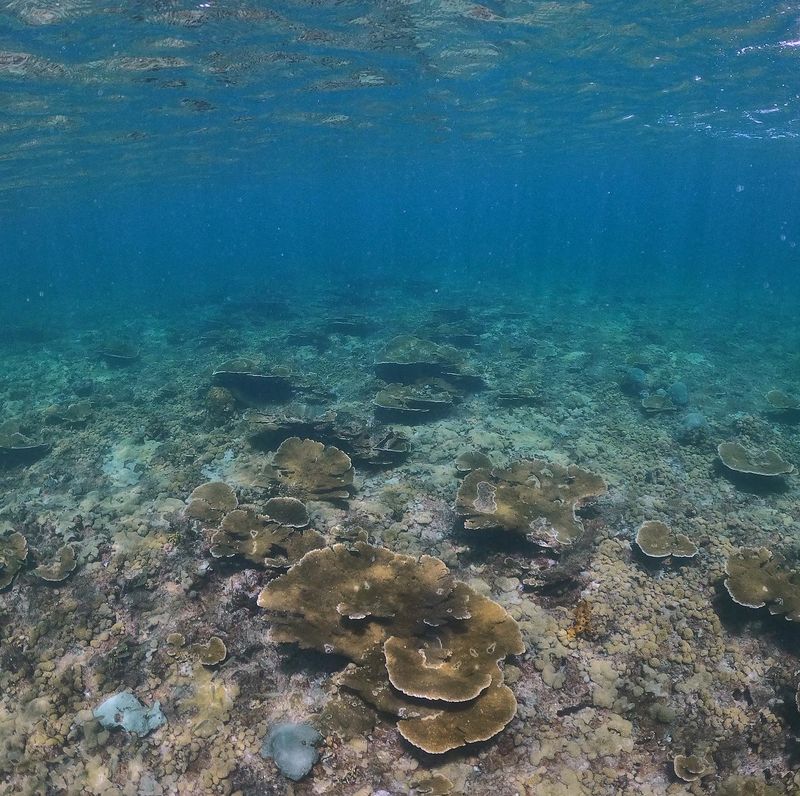
Caribbean exclusivity comes with shrinking dive opportunities at this iconic private island. The resort’s signature sites have degraded significantly while marketing materials continue using decade-old footage of formerly vibrant reefs.
Guests increasingly require boat trips to distant locations for quality diving experiences. The resort compensates by emphasizing their Jean-Michel Cousteau partnership while quietly extending travel times to reach healthy reef systems that can match guests’ expectations formed by outdated promotional materials.
14. Cempedak Private Island’s Turtle Program Failures
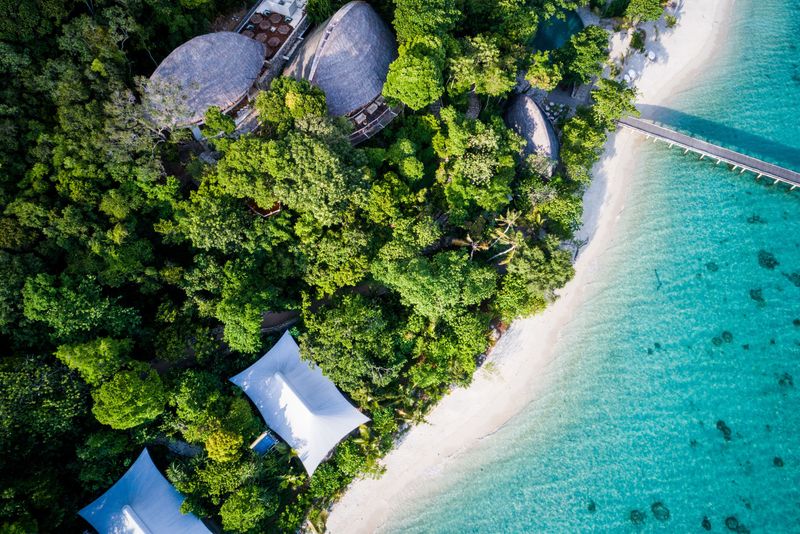
Indonesia’s adults-only eco-retreat promotes their sea turtle conservation while concealing disappointing hatch rates. Their highly publicized hatchery consistently underperforms compared to community-run programs due to poor temperature management.
Guests participate in releases where survival chances are compromised by daytime timing chosen for convenience rather than turtle safety. The resort claims credit for regional turtle population increases actually resulting from local fishing regulation changes unrelated to their efforts.
15. Hurawalhi Maldives’ Underwater Restaurant Impact
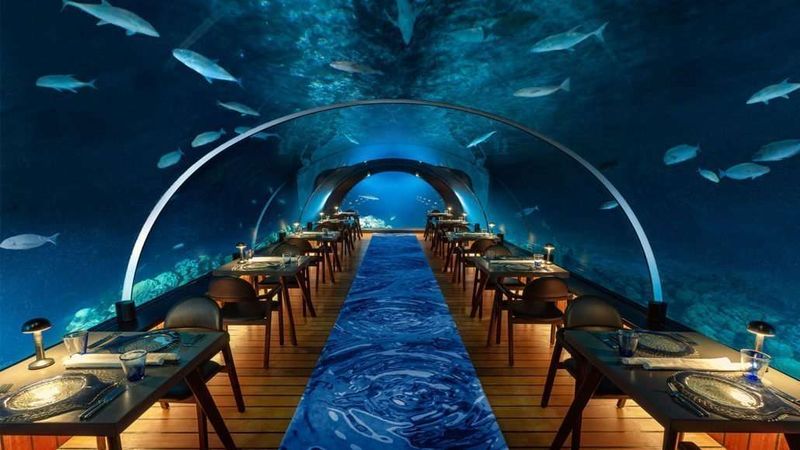
The world’s largest underwater restaurant creates unnatural light pollution affecting marine life behavior patterns. Nocturnal species avoid the area while opportunistic predators exploit the artificial illumination to hunt.
Construction required extensive reef modification never mentioned in sustainability reports. Marine biologists have documented significant changes in species distribution surrounding the structure, with some fish populations completely relocated from their original habitat areas to accommodate the architectural marvel guests admire.

